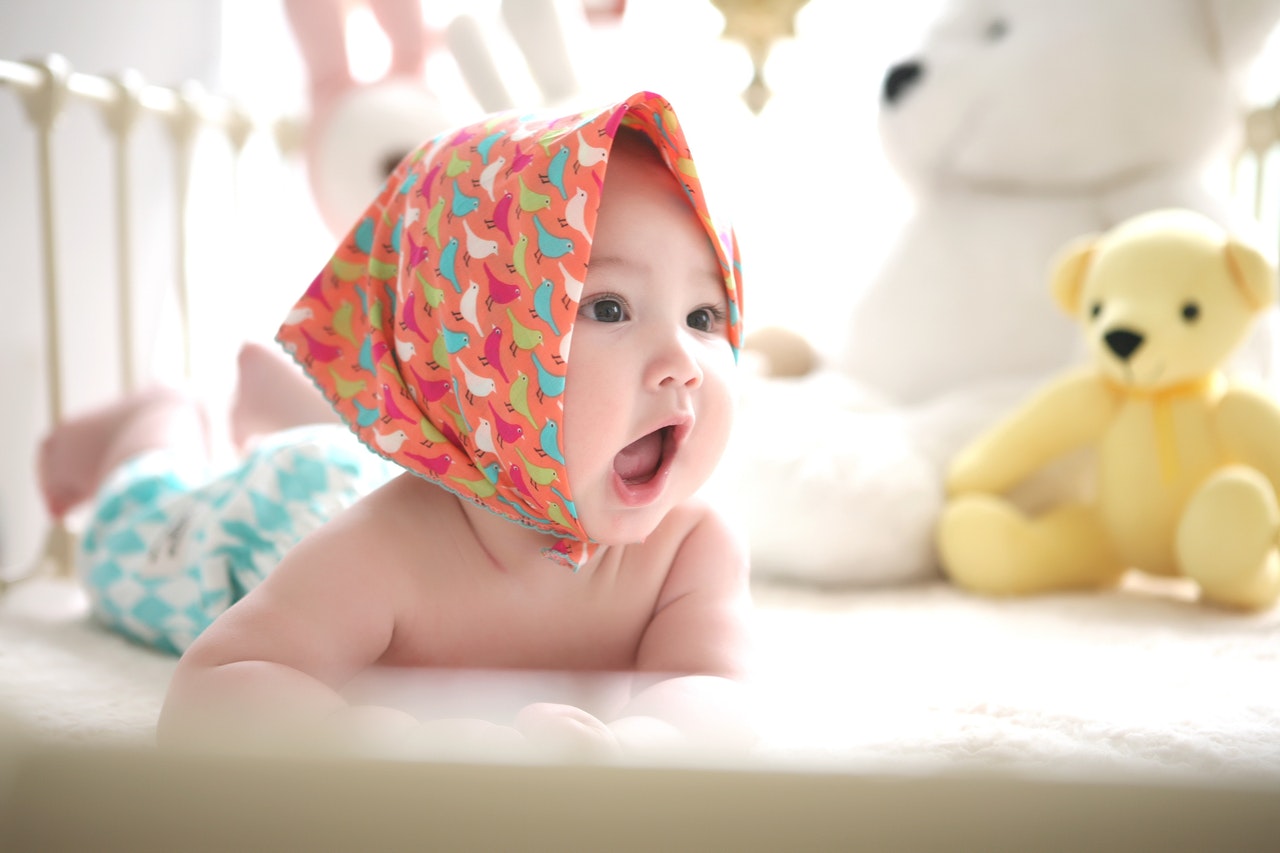It can be difficult to keep your baby clean and healthy, especially in the first year. Lately, I’ve noticed a lot of moms are struggling with this. Luckily, you don’t need to feel confused by all the information on the internet. There are some basic things you need to know about keeping your baby clean and healthy in the first year.
Cleaning and bathing your baby
A newborn baby is surprisingly self-sufficient when it comes to personal hygiene. In fact, it’s common for babies to go several days without a bath during the first few weeks of life. Unless your baby gets dirty from a diaper leak or vomiting, you don’t need to give him or her a bath until their umbilical cord drops off and their circumcision heals (if the latter applies). At this point, you can begin giving your baby sponge baths using a mild, unscented soap once or twice a week.
In the meantime, you should keep your baby clean by simply wiping them down with a washcloth on an as-needed basis. Here’s how:
- Wash hands thoroughly with soap and warm water before handling your baby
- Place a soft towel on top of the changing table or other flat surface
- Lay the baby on his or her back on top of the towel
- Undress the baby, leaving diaper on
- Wash face gently with a moist washcloth
- Wipe eyes from inside to outside corner; use fresh areas of washcloth as needed
- Wash hands and arms up to elbows; use moist washcloth for sudsing and rinsing
- Clean genitals and bottom last (girls from front to back; boys from testicles
Changing diapers
Diaper changes are a fact of life for babies (and parents) in the first year. It is important to change your baby’s diaper every 2-3 hours and when it is soiled. While it may sound like a lot of work, changing your baby’s diaper often will help prevent diaper rash and keep your baby comfortable.
Newborns have very sensitive skin, so you need to be careful with what you use on them. You should always purchase fragrance free baby wipes, as well as alcohol-free diapers. Never let your baby stay in a soiled diaper for too long; if you don’t change the diaper right away, the urine and feces can lead to irritation on the skin. Diaper rashes can happen to any baby at some point during their first year, but they are most common between 4-15 months. Diaper rashes are typically caused by friction between the skin and the diaper or from bacteria that gets into the skin when a child has diarrhea. When you notice a rash on your child’s bottom, it’s best to treat it right away with an ointment that contains zinc oxide (such as A+D Original Ointment) or petroleum jelly (like Vaseline).
Feeding and burping
Feeding is a very important part of a baby’s life. Most mothers feed their babies by breastfeeding. Breastfeeding is the natural way of feeding a baby and it is a great way for mother and baby to bond. However, some mothers can’t breastfeed their babies for various reasons. In this situation, you should use formula milk to feed your baby.
If you are breastfeeding, it is best to feed your baby often, at least eight times in 24 hours. If you are using formula milk, it is recommended that you feed your baby at least six times in 24 hours. It is also good to get into a routine if possible with feeding and sleeping as this helps your baby feel safe and secure. Try to put your baby down to sleep before they become overtired or overstimulated.
After every feed, you should burp your baby to prevent them from getting colic pain. You can hold them up over your shoulder or sit them up on your lap while gently patting their back until they burp up any air bubbles they might have swallowed while feeding.
Protecting baby from germs
Although you may have heard that some exposure to germs in early childhood is a good thing, because it helps your baby develop immunity, there are still plenty of ways to keep your little one safe from harmful bacteria and viruses. When it comes to babies, it’s a delicate balance between preparing your child for the world and keeping them from getting sick. Here are some things you can do to help keep your baby healthy and clean.
- Wash your hands frequently. This rule applies whether you’re at home or out and about. Make sure all caregivers wash their hands before touching the baby, especially after using the bathroom or changing diapers. If you’re out, take hand sanitizer with you in case soap and water aren’t available.
- Keep baby away from people who are sick. It may be tempting to introduce your newborn to everyone who visits, but they’ll still be there when they’re older—and less susceptible to infection—so it’s best not to expose them until they’re stronger.
- Use a humidifier in the nursery during cold or dry weather. This helps keep mucus membranes moist so they can fight off germs more easily.
If you prepare yourself ahead of time, you’ll be better equipped to keep your first baby clean and healthy. With the right mindset and a bit of planning, you’ll find that cleaning and maintaining your baby can be both fun and rewarding. Take a little time now to decide what methods are best for you and your family, streamline your everyday routines, and soak in every moment with your new precious bundle.

